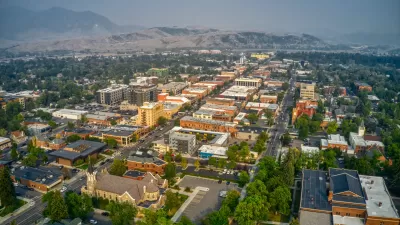Bert Sperling, who has earned recognition for his lists of "Best Places," responds to questions posed by the readers of the Freakonomics blog.
"Sperling, with a background in accounting and engineering, owned a software company in the mid-1980's. When he spotted a study that ranked Pittsburgh as the best place to live in the U.S., he wrote some software that allowed people to generate ranked lists of places tailored to their preferences. After this system was written up in USA Today, Sperling was asked by Money magazine to compile its first "best places" list."
"He has agreed to field your questions here, so fire away. (Wasilla, anyone?) As with our past Q&A's, we'll keep the comments section open for a few days and then post Sperling's responses in short order."
Dozens of questions have been posted so far, with answers forthcoming in the next several days.
Thanks to Franny Ritchie
FULL STORY: Freakonomics blog

Maui's Vacation Rental Debate Turns Ugly
Verbal attacks, misinformation campaigns and fistfights plague a high-stakes debate to convert thousands of vacation rentals into long-term housing.

Planetizen Federal Action Tracker
A weekly monitor of how Trump’s orders and actions are impacting planners and planning in America.

San Francisco Suspends Traffic Calming Amidst Record Deaths
Citing “a challenging fiscal landscape,” the city will cease the program on the heels of 42 traffic deaths, including 24 pedestrians.

Defunct Pittsburgh Power Plant to Become Residential Tower
A decommissioned steam heat plant will be redeveloped into almost 100 affordable housing units.

Trump Prompts Restructuring of Transportation Research Board in “Unprecedented Overreach”
The TRB has eliminated more than half of its committees including those focused on climate, equity, and cities.

Amtrak Rolls Out New Orleans to Alabama “Mardi Gras” Train
The new service will operate morning and evening departures between Mobile and New Orleans.
Urban Design for Planners 1: Software Tools
This six-course series explores essential urban design concepts using open source software and equips planners with the tools they need to participate fully in the urban design process.
Planning for Universal Design
Learn the tools for implementing Universal Design in planning regulations.
Heyer Gruel & Associates PA
JM Goldson LLC
Custer County Colorado
City of Camden Redevelopment Agency
City of Astoria
Transportation Research & Education Center (TREC) at Portland State University
Jefferson Parish Government
Camden Redevelopment Agency
City of Claremont





























